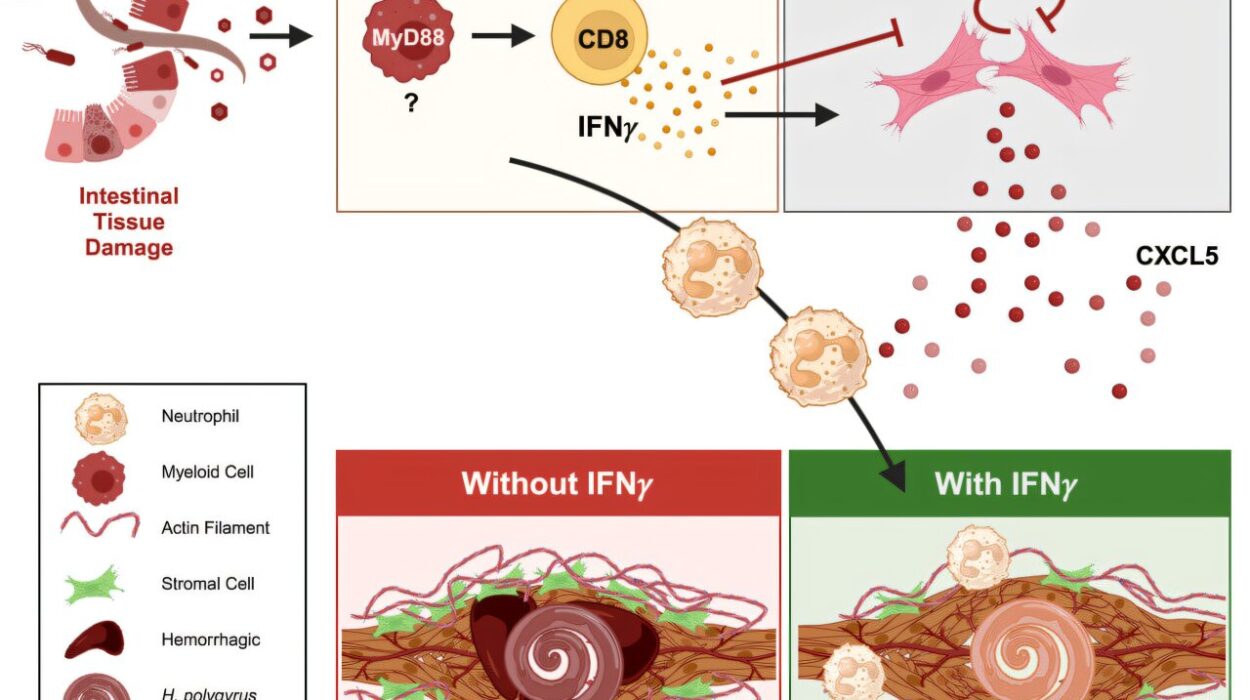Imagine standing in front of a vending machine, your stomach growling for a quick snack. There are two choices: a candy bar right in front of you, or a healthy meal that will take an hour to prepare. The candy bar seems irresistible, the immediate reward so tempting. But what if this split-second choice reflected something deeper, something embedded in your very DNA? Researchers from the University of California San Diego have just uncovered an unexpected genetic connection to this type of impulsive decision-making, shedding new light on how our decisions today could impact our health tomorrow.
The study, which was published in Molecular Psychiatry, didn’t just focus on this everyday dilemma—it sought to understand the underlying genetic factors that influence why some people prefer instant gratification while others are better at delaying their desires for bigger rewards later. In a world full of temptations, these decisions may seem trivial at first glance. But the reality is far more complex. It turns out that our tendency to make impulsive choices has deep roots in both our biology and our health.
Unraveling the Genetic Code of Impulsivity
For years, scientists have known that delay discounting—the tendency to favor immediate, smaller rewards over larger, delayed ones—can be linked to several mental and physical health conditions. What’s less clear, however, is why some people are more prone to this pattern of thinking than others. The team at UC San Diego decided to dive deeper into this question by mapping the genetic regions that might be at play. Their groundbreaking research analyzed the genome-wide data of nearly 135,000 participants from 23andMe, revealing 11 genetic regions tied to delay discounting.
“We found that impulsive decision-making is not just a quirky behavioral trait,” said Dr. Sandra Sanchez-Roige, the senior author of the study. “It is intricately woven into the genetic pathways that influence both brain function and physical health.” What made this study stand out was its sheer scale—five times larger than previous efforts—and the discovery of 93 candidate genes linked to this behavior. Some of these genes were involved in dopamine signaling, neuronal growth, metabolism, and brain structure. These are the same systems that regulate everything from psychiatric disorders to obesity and chronic pain. The findings suggest that impulsivity isn’t just a product of the momentary urge; it’s shaped by a complex web of biological factors.
The Overlapping Pathways of the Mind and Body
As the team dug deeper, they began to unravel a pattern: delay discounting doesn’t exist in isolation. It overlaps with a range of mental health traits, from depression to substance use, as well as physical health problems like obesity and gastrointestinal disorders. “There are certain biological pathways, particularly those involved in cognition and metabolism, that seem to overlap,” explained Dr. Abraham A. Palmer, a co-author of the study. “These shared pathways help explain why impulsive decision-making shows up in so many mental and physical health conditions.”
The researchers also conducted an intriguing analysis to uncover these overlapping mechanisms. They found that delay discounting was linked to 73 traits in total, including substance use, sleep duration, and even educational outcomes. This cluster of overlapping traits reveals how impulsivity could ripple across various aspects of our lives. The connections between cognition, behavior, and health are not as distinct as we might think. Rather, they are interwoven, suggesting that how we make decisions today can influence our well-being in the future in ways we don’t fully understand.
The Clinical Implications: A New Path for Treatment?
What does this mean for our health? To answer this, the team developed polygenic scores for delay discounting. These scores represent an individual’s genetic predisposition toward favoring immediate rewards. The team then tested these scores in a hospital cohort of over 66,000 individuals. What they discovered was eye-opening: these genetic tendencies were associated with a range of serious medical conditions, including type 2 diabetes, chronic pain, ischemic heart disease, and even tobacco use disorder.
Dr. Hayley Thorpe, the first author of the study, explained the significance of these findings. “Our research shows that the genetic propensity to make impulsive decisions isn’t just a psychological trait—it’s linked to actual, long-term health risks.” These results are significant because they suggest that impulsive decision-making might play a role in shaping the trajectory of an individual’s health over the years.
The implications of this research are far-reaching. “Understanding the genetic and biological underpinnings of delay discounting opens up a whole new realm of possibilities for clinical treatment,” Dr. Sanchez-Roige noted. In the future, delay discounting could become a valuable tool for identifying individuals at risk for a range of conditions. It could also help refine treatment strategies, whether behavioral or pharmacological, aimed at reducing impulsivity. “By targeting the genetic factors that influence delay discounting, we could help prevent or treat disorders linked to impulsivity,” she said.
Why It Matters: A New Lens on Human Behavior and Health
While the study’s findings are certainly fascinating, they also raise important questions about how we approach both mental and physical health. Instead of focusing solely on specific diseases or disorders, the study reveals how certain fundamental genetic traits—like impulsivity—can shape our behavior across a lifetime. “These genetic tendencies are the building blocks that influence everything from how we make decisions to how we interact with the world,” explained Dr. Palmer. “They affect not only our health but also our social and economic outcomes.”
This research opens the door to a new way of thinking about prevention and treatment. If impulsivity is tied to specific genetic pathways, could it be possible to intervene early, before it leads to long-term health issues? Could future treatments be more personalized, based on an individual’s genetic risk for delay discounting? These are questions that could fundamentally alter how we approach public health.
Importantly, the researchers emphasize that their findings are just the beginning. “While our study identifies some promising genetic targets, we still need to explore the causal relationships between delay discounting and health outcomes,” Dr. Sanchez-Roige concluded. “The next step will be to test whether modifying delay discounting can lead to better health outcomes.” But for now, the study offers an exciting glimpse into how genetic research could reshape our understanding of impulsive decision-making and its far-reaching consequences on health.
In the end, this research is more than just a scientific breakthrough; it’s a reminder of the invisible forces that shape our choices and, ultimately, our lives. By continuing to explore the genetic basis of our decisions, we might one day be able to help people make better choices—not just in vending machine moments, but in how they manage their health and well-being for years to come.
More information: Molecular Psychiatry (2025). DOI: 10.1038/s41380-025-03356-8






